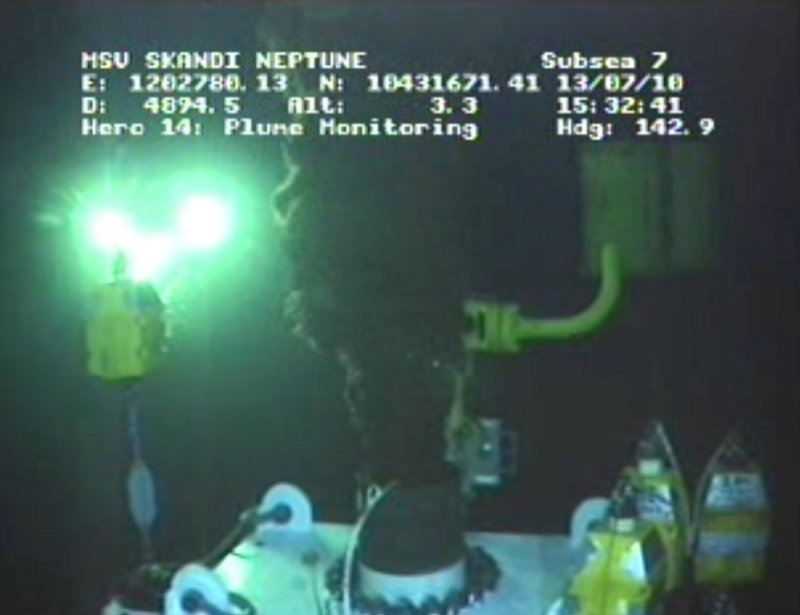This video still provided by BP PLC shows a plume of oil leaking into the Gulf of Mexico at British Petroleum's Deepwater Horizon Oil Spill site, July 13, 2010. BP has installed a new oil collection cap they hope will choke off a majority of the leak. UPI/BP
NEW ORLEANS, Aug. 6 (UPI) -- Relief wells to stop the oil leak permanently in the Gulf of Mexico are on schedule for mid-August following a cementing procedure, BP said Friday.
U.S. officials gave British oil company BP permission to fill a leaking well at the bottom of the Gulf of Mexico with cement following a static kill procedure early this week.
The company announced Friday that it had completed the cementing process and that monitoring was ongoing to determine the effectiveness of the latest containment effort.
BP was able to place a containment cap over the leak in July, ending months of oil leakage into the waters off the southern coast of the United States.
The government estimates that nearly 5 million barrels of oil spilled into the gulf before the well was temporarily capped July 15.
Retired U.S. Coast Guard Adm. Thad Allen, national incident commander for the Deepwater Horizon response, said the cementing process brings the situation one step closer to a final resolution.
"Let me state, and I have stated this several times, that this is not the end," he told reporters. "But it will virtually assure us that there will be no chance of oil leaking into the environment."
Allen said drilling teams were about 100 feet away from intercepting the well.
"Depending upon weather conditions, mid-August is the current estimate of the most likely date by which the first relief well will intercept the Macondo well annulus," the British oil company said in its latest statement.















